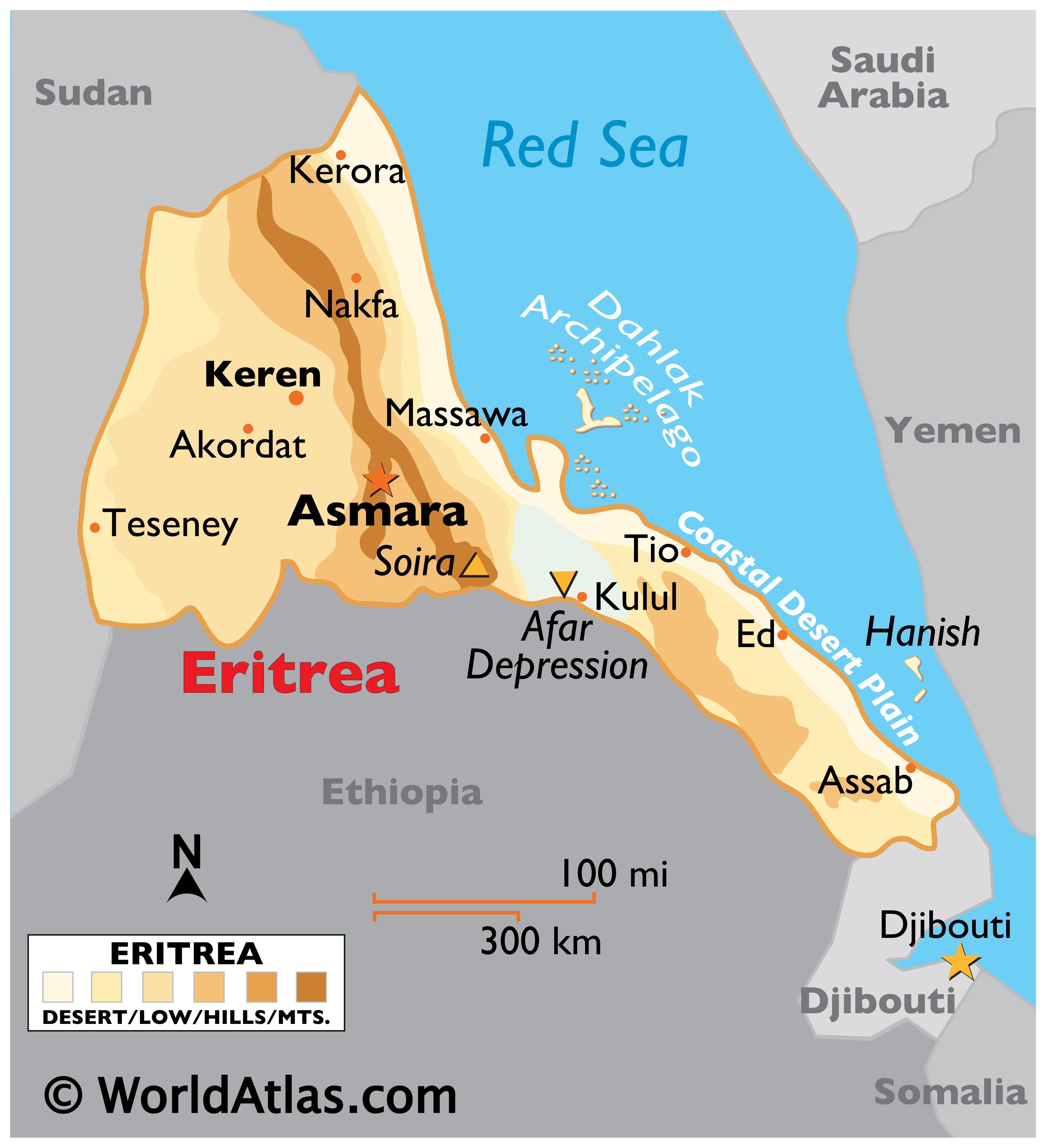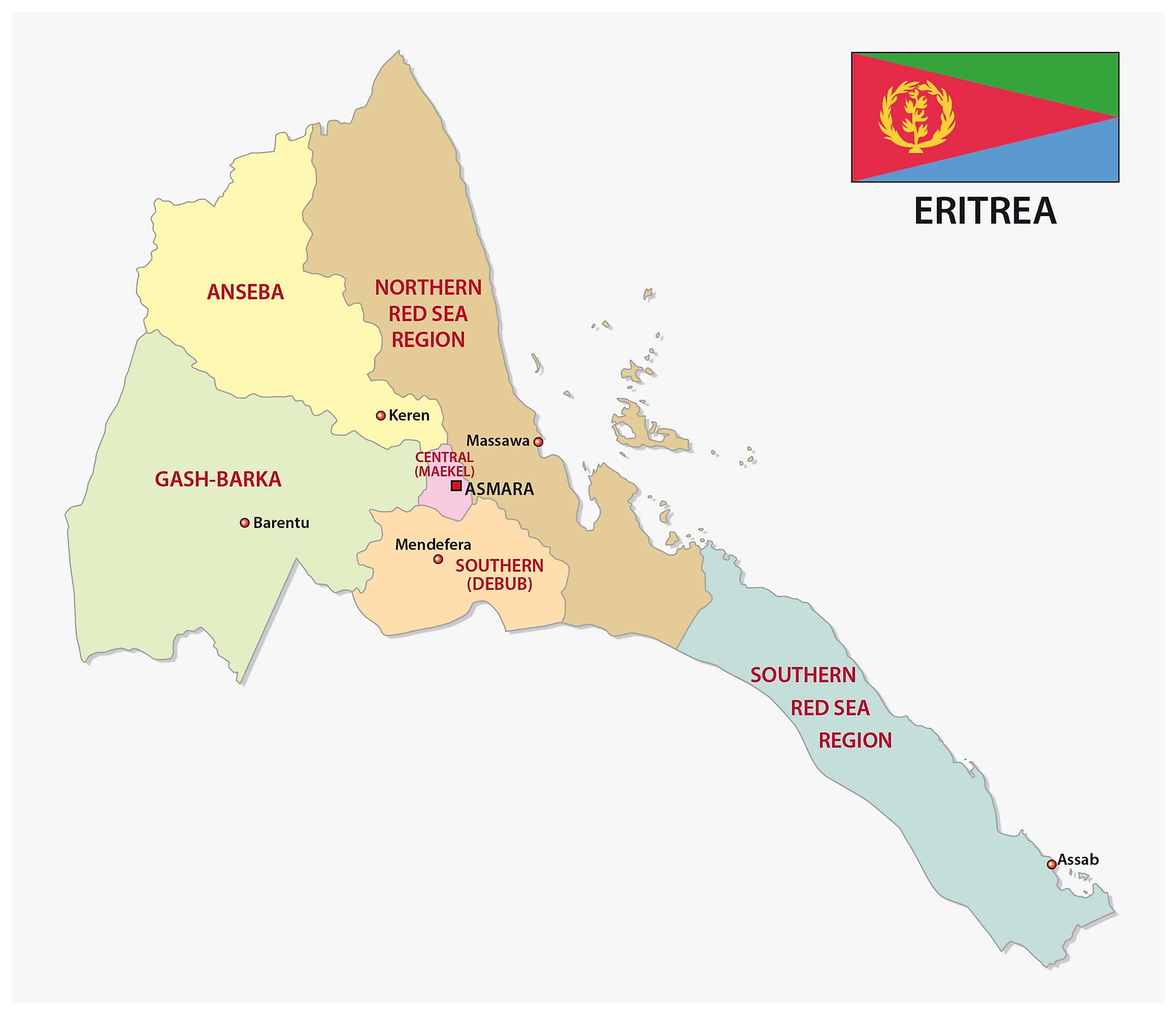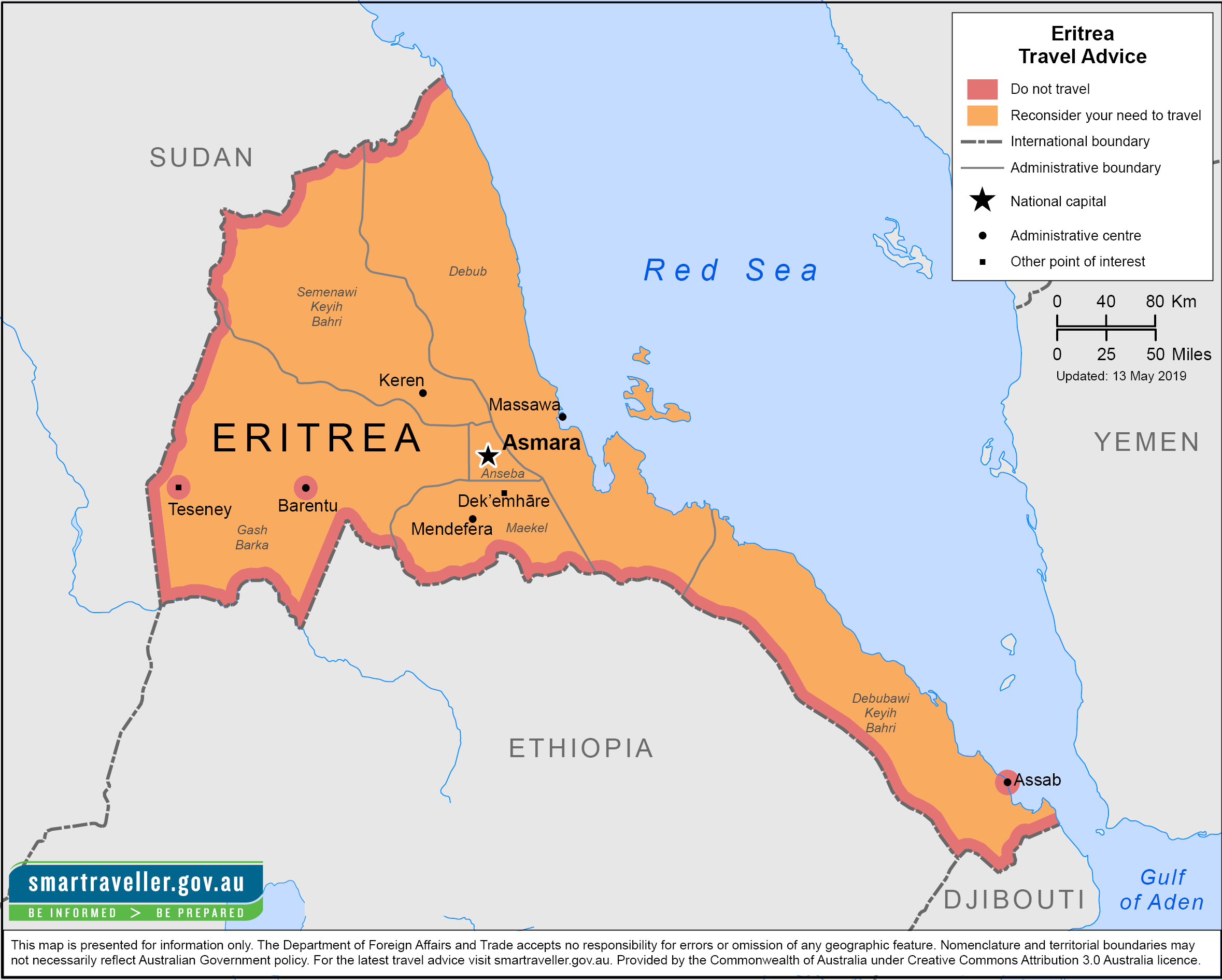Eritrea-Iran Relations: A Red Sea Power Play Unveiled
In the intricate web of international diplomacy, few relationships are as strategically pivotal and fraught with geopolitical tension as the evolving bond between Eritrea and Iran. Situated at the critical choke point of the Red Sea, Eritrea’s foreign policy decisions reverberate across the Horn of Africa and the broader Middle East, directly impacting maritime security and regional power dynamics. This article delves into the historical roots, current manifestations, and profound implications of Eritrea Iran relations, examining how this partnership is reshaping alliances and challenging established security paradigms.
The strategic convergence of interests between Asmara and Tehran has become a focal point for global observers, particularly given Eritrea’s unique position and Iran’s ambitions in the Red Sea. From diplomatic overtures to alleged military cooperation, the trajectory of this relationship warrants close scrutiny. Understanding the motivations behind this deepening alliance and its potential consequences is crucial for anyone seeking to grasp the complex geopolitical shifts underway in one of the world’s most vital maritime corridors.
Table of Contents
- The Genesis of Diplomatic Ties: A Surprising Start
- Eritrea's Strategic Value: A Geopolitical Chessboard
- Deepening Bonds: Economic and Political Overtures
- The Red Sea Nexus: A Growing Security Concern
- Israel's Shifting Stance: From Ally to Adversary
- Unpacking the Influence: Eritrea's Alignment with Iran
- The Implications for Regional Stability and Global Powers
The Genesis of Diplomatic Ties: A Surprising Start
The formal establishment of diplomatic relations between Eritrea and Iran on May 24, 1993, marked a significant, albeit initially understated, development in the Horn of Africa’s geopolitical landscape. This timing is particularly noteworthy as it occurred shortly after Eritrea gained its independence, a period when the nascent nation was actively forging its international identity. What made this early engagement with Iran somewhat surprising to some observers was Eritrea's simultaneous cultivation of relations with Israel. Despite protests from various Arab countries, Eritrea developed ties with Israel shortly after its independence in 1993, showcasing a pragmatic and independent foreign policy stance from the outset. For years, this dual approach allowed Eritrea to navigate complex regional dynamics, maintaining a degree of strategic ambiguity. The President of Eritrea even visited Israel for medical treatment, underscoring a period where ties with Jerusalem were seemingly robust. However, as the geopolitical currents shifted, so too did the nature of Eritrea Iran relations, moving from mere diplomatic recognition to a more substantive and, for some, concerning partnership. This early foundation, laid almost three decades ago, set the stage for the strategic deepening of ties that would later emerge as a significant security concern for various international actors.Eritrea's Strategic Value: A Geopolitical Chessboard
Eritrea’s geographical position is arguably its most significant asset in the intricate game of regional and international power politics. Nestled along the Red Sea coast, with direct access to one of the world's busiest shipping lanes, Eritrea offers a strategic foothold that is highly coveted. This unique location has historically made it a valuable partner for various global powers, and its relationship with Israel, in particular, opened the door for the Israeli state to establish a military listening base. This base was reportedly intended to monitor Iran's smuggling of weapons to Israel's adversaries, highlighting Eritrea’s critical role in regional intelligence and security operations. However, the geopolitical chessboard shifted, and in parallel with Israel's presence, Iran also began to maintain a military presence in the southern port of Eritrea. This dual presence underscored the intensifying competition for influence in the Red Sea. Iran, often facing international isolation, found in Eritrea’s own isolation an opportune moment to establish a strategic foothold in the Horn of Africa. This direct access to the Red Sea served Iran’s broader strategic objectives, including projecting power and facilitating its maritime activities. Eritrea’s willingness to accommodate both powers, at different times or even concurrently, demonstrates its strategic importance and its complex balancing act in a volatile region. The Red Sea is not merely a transit route; it is a critical artery for global trade and a flashpoint for regional rivalries, making Eritrea’s allegiance a matter of significant international concern.Deepening Bonds: Economic and Political Overtures
Beyond military and strategic considerations, the deepening of Eritrea Iran relations is also evident in their expanding economic and political cooperation. Iran, seeking to leverage its expertise and find new markets, has explicitly stated its readiness to offer Eritrea its achievements and experiences in various sectors. Hosseini, a representative from Iran, noted that Iran is prepared to offer assistance "notably in the fields of agriculture, mining, and automotive sectors." This indicates a clear intention to build a multifaceted partnership that extends beyond security concerns into areas of mutual economic benefit. The commitment to strengthen ties was further solidified by recent high-level engagements. Saleh Mohammed, Eritrea’s Foreign Minister, who attended President Pezeshkian’s inauguration, publicly affirmed that Eritrea seeks the expansion of relations with the Islamic Republic of Iran. This statement, coming from a senior Eritrean official at a significant diplomatic event, underscores Asmara’s explicit desire to foster closer ties. Both nations have formally agreed to increase their economic, political, and diplomatic cooperation, signaling a comprehensive approach to their partnership. This broad agreement suggests a long-term vision for Eritrea Iran relations, aiming to integrate their economies and align their political stances on regional and international issues, thereby solidifying Iran’s influence in a strategically vital part of the world.The Red Sea Nexus: A Growing Security Concern
The evolving nature of Eritrea Iran relations has transcended mere diplomatic niceties, morphing into a significant security concern for regional and international powers. Eritrea’s deepening ties with Iran, particularly its actions and inactions in the Red Sea, have raised alarms about maritime stability and the broader security architecture of the region.Disrupting Maritime Routes
One of the most pressing concerns stemming from this partnership is Eritrea's alleged role in disrupting maritime routes in the Red Sea. Reports suggest that Eritrea has been allowing Iranian vessels to use its waters, a move that provides Iran with enhanced operational capabilities in this critical waterway. This facilitation of Iranian naval activities is seen as a direct challenge to the security of international shipping and the interests of nations reliant on these routes. Furthermore, Eritrea also reportedly provides a maritime link between Iran and Syria, by allowing Iranian naval forces to move from the Indian Ocean through the Red Sea and Suez Canal to the Mediterranean. This strategic corridor enables Iran to project power and supply its allies, bypassing traditional choke points and raising serious questions about Eritrea's complicity in Iran's regional agenda. The potential for these activities to escalate into direct threats to commercial shipping or naval operations is a constant worry for global maritime security.Tehran's Silent Enforcer
The perception among many international observers is that Eritrea has become Tehran’s silent enforcer in the Horn of Africa. This characterization stems from Eritrea’s apparent willingness to turn a blind eye to Iran’s destabilizing agenda, effectively enabling its activities in the region. A critical aspect of this concern is Eritrea’s silence on Houthi aggression in the Red Sea. The Houthis, an Iran-backed rebel group in Yemen, have increasingly targeted commercial and military vessels, posing a direct threat to international shipping. Eritrea’s lack of condemnation or action against these aggressions, despite its strategic location, exposes a growing security threat in the Red Sea and suggests a tacit endorsement of Iran’s proxies. This silence, coupled with the alleged facilitation of Iranian naval movements, has led to Eritrea emerging as a direct security risk to Israel and the United States, intensifying the geopolitical stakes in the region. The implications of such an alignment extend far beyond the immediate waters, impacting global trade and stability.Israel's Shifting Stance: From Ally to Adversary
The trajectory of Eritrea Iran relations has precipitated a dramatic shift in Israel's perception of Eritrea, moving from a cautious ally to a perceived adversary. For years, Eritrea maintained a working relationship with Israel, evidenced by the Eritrean president's visits to Israel for medical treatment and Israel's strategic interest in maintaining a listening post on Eritrean soil to monitor Iranian activities. This period underscored a pragmatic alliance based on shared strategic interests, primarily concerning Iran. However, Eritrea's growing relationship with Iran, particularly its alleged role in disrupting maritime routes in the Red Sea and allowing Iranian vessels to use its waters, has fundamentally altered this dynamic. This deepening bond has become a significant security concern for Israel and its allies, including Azerbaijan. The increasing influence of Iran over Eritrea, as highlighted by incidents where the Eritrean regime appeared to target Azerbaijan – a close ally of Israel – has solidified Israel's view of Eritrea as a partner in Iran's destabilizing agenda. Recent analyses suggest that Eritrea no longer serves Israel's security interests, leading to calls within Israeli strategic circles to reconsider their diplomatic approach. There's a growing sentiment that it's time to cut ties, with some arguing that Dictator Isaias Afwerki’s close ties with the Islamic regime in Iran are a sufficient reason to act against the Eritrean embassy and even consider severing diplomatic relations with Asmara. This dramatic re-evaluation underscores the profound impact that Eritrea Iran relations are having on regional alliances and strategic calculations.Unpacking the Influence: Eritrea's Alignment with Iran
The evidence strongly suggests a significant and growing alignment between Eritrea and Iran, extending beyond mere economic or political cooperation into areas of strategic and ideological solidarity. This alignment is particularly concerning for nations that view Iran’s regional activities as destabilizing. Eritrea’s relations with Iran are increasingly seen as controversial, marking Iran as another contentious Middle Eastern partner for Asmara. A key indicator of this deepening influence is Eritrea’s apparent willingness to act in ways that benefit Iran’s strategic objectives, even if it means alienating traditional partners. The incident where the Eritrean regime appeared to be targeting Azerbaijan, a close ally of Israel, serves as a stark example. This action highlights the increasing influence of Iran over Eritrea, suggesting that Asmara is aligning its foreign policy to support Tehran’s broader geopolitical maneuvers. Furthermore, Eritrea’s public statements and diplomatic actions often mirror Iran’s positions on critical regional issues. For his part, the Eritrean Foreign Minister condemned the assassination earlier in the day in Tehran of Palestinian resistance group Hamas’ political chief Ismail Haniyeh. This condemnation aligns Eritrea with Iran’s stance on the Israeli-Palestinian conflict and its support for groups like Hamas, further cementing the perception of a strategic alignment. Such actions suggest that Eritrea is not merely a passive recipient of Iranian overtures but an active participant in advancing a shared agenda, making the Eritrea Iran relations a matter of serious geopolitical consequence.The Implications for Regional Stability and Global Powers
The deepening of Eritrea Iran relations carries significant implications that extend far beyond the immediate borders of the two nations, directly impacting regional stability and the strategic interests of major global powers. This partnership is not merely a bilateral affair; it is a critical piece in the larger geopolitical puzzle of the Middle East and the Horn of Africa.Risks to US Interests
For the United States, the strengthening of ties between Eritrea and Iran presents a tangible security risk. Eritrea has been characterized as Tehran’s silent enforcer, turning a blind eye to Iran’s destabilizing agenda, which directly challenges US efforts to maintain peace and security in the region. The potential for Iran to leverage Eritrea’s strategic location to project power, facilitate illicit activities, or support proxy groups in the Red Sea and beyond poses a direct threat to US naval operations, commercial shipping interests, and broader strategic objectives in the Middle East and Africa. The Red Sea is a vital conduit for global trade and energy supplies, and any disruption or increased Iranian influence in this area is a serious concern for Washington.Broader Geopolitical Ramifications
The strategic implications of Eritrea Iran relations reverberate across the entire region. Eritrea’s deepening ties with Iran and its silence on Houthi aggression expose a growing security threat in the Red Sea, impacting not only Israel and the US but also Gulf states and other nations reliant on maritime trade. This partnership could embolden other actors seeking to challenge the status quo, potentially leading to increased militarization of the Red Sea and heightened regional tensions. While the extent to which Eritrea and Iran are still closely aligned in political and military fields remains a subject of ongoing analysis and debate, the visible signs of cooperation and alignment are enough to warrant serious concern. The relationship represents a potential shift in the balance of power, creating new challenges for international efforts to promote stability and counter malign influences in a critical global artery.Conclusion
The evolving landscape of Eritrea Iran relations represents a significant and increasingly concerning development in global geopolitics. From their initial diplomatic establishment in 1993 to the current deepening of economic, political, and alleged military cooperation, the trajectory of this partnership has shifted from a pragmatic, albeit controversial, foreign policy choice for Eritrea to a source of considerable security anxiety for nations like Israel, the United States, and their allies. Eritrea’s strategic location on the Red Sea, combined with Iran’s ambition to project power and circumvent international isolation, has created a potent synergy. As Eritrea appears to embrace its role as Tehran’s silent enforcer, facilitating maritime activities and aligning its diplomatic stance with Iran’s agenda, the implications for Red Sea security and regional stability become ever more pronounced. The shift in Israel’s perspective, from a past ally to a current adversary, underscores the gravity of this evolving relationship. Understanding these complex dynamics is crucial for navigating the intricate web of alliances and rivalries in one of the world's most vital geopolitical hotspots. We invite our readers to share their thoughts and perspectives on the future trajectory of Eritrea Iran relations and their potential impact on regional and global security. What are your predictions for this partnership? How do you think international powers should respond? Share your insights in the comments below, and explore other articles on our site for more in-depth analyses of critical geopolitical developments.
Eritrea Map / Geography of Eritrea / Map of Eritrea - Worldatlas.com

Eritrea Maps & Facts - World Atlas

Eritrea Travel Advice & Safety | Smartraveller